Published in 2017 by The Rosen Publishing Group, Inc.
29 East 21st Street, New York, NY 10010
Copyright 2017 by The Rosen Publishing Group, Inc.
First Edition
All rights reserved. No part of this book may be reproduced in any form without permission in writing from the publisher, except by a reviewer.
Library of Congress CataloginginPublication Data Names: Callahan, Timothy.
Title: A teen's guide to custody / Timothy Callahan and Claudia Isler.
Description: New York : Rosen Publishing, 2017. | Series: Divorce and your family| Includes index.
Identifiers: ISBN 9781508171300 (library bound)
Subjects: LCSH: Divorce--Juvenile literature. | Custody of children--Juvenile literature. | Children of divorced parents--Juvenile literature.
Classification: LCC HQ777.5 C35 2017 | DDC 306.89--dc23
Manufactured in China
CONTENTS
W hen divorce occurs in a family, everyone is affected. Even though divorce is the dissolution of a marriage, its not just the married couples relationship thats changing. If the couple are parents, it also means the end of their family as it was. Although parents continue to be parents, no matter their marital status, the lives of their children will be altered forever after a divorce.
Around 40 percent of all marriages in the United States end in divorce. Every year, more than 1.5 million children are affected by divorce. For many teenagers, divorce is a part of their lives. Divorce doesnt have to affect your life in negative ways, but be prepared for a lot of change.
When your parents get divorced, the first thing you must face is how your family has suddenly changed and, in most cases, been rearranged. Because your parents will no longer want to live together, chances are one will move out of your home. Maybe everyone will move out of the home because it is too expensive under the new circumstances. You may even find yourself living in a different town, attending a new school. Most likely, you will live most of the time with one parent and visit your other parent on weekends or during school vacations. You will have to adapt to shuttling back and forth and to not seeing your parents as often as you once did.
This new life may seem strange and confusing, and you may feel as though you dont even have a family anymore. Divorce comes with a whole range of emotions. Often, young people whose parents are divorcing feel as though they are caught in the middle. Their family is breaking apart, and they arent sure where they belong.
No matter what the future holds, you will always have a family. It will simply look different from the way it once did. The word family means different things to different people. Some teens live with only one parent, some live with both their mom and their dad, and some live in foster homes. Other teens split time between two homes, and some have stepparents, stepsiblings, and half siblings. These are all families; theyre just made up of different people.
One of the most important issues that divorcing couples must agree on is custody. The parent who has custody of you cares and supervises you on a daily basis. There are a variety of custody options that divorcing couples choose or are awarded by a judge.
If you do feel caught in the middle of your parents divorce, afraid of what it means for you, then you will find this resource very helpful. It will explain the custody process, how decisions are made, and how these decisions will affect your life. It will give you advice on dealing with your parents, the court system, and your own difficult and confused emotions. Divorce isnt the end of the world, although it can sometimes feel like it. You will survive your parents divorce. And you may even be a stronger and happier person for it.
That may sound strange now; it might take a few years to find some truth in it. Chances are, your parents were not happy in their marriage. If they fought a lot or one parent stayed away to avoid the other, you might welcome the change. It is better to see your parents happy and thriving, and often times, divorce, however painful the process may be, can allow unhappy parents to blossom. You might find that after the dust settles, you are a lot happier, too.
O ne of the decisions made during your parents divorce regarded custody. This was a determination of who would care for you, where you would live, and how often you would see each parent.
You may end up living with one parent all the time. That parent has sole custody of you. Sole custody means that only one of your parents or your guardian makes all the decisions that will affect your life. These include where youll live; where youll go to school; your religious education, if any; which doctors will check on your health; what time you need to be home for dinner; and just about everything else.
When Hayleys parents got divorced, they promised her that things wouldnt change too much. But Hayleys dad moved out, and then Hayleys mom rented a smaller place for just the two of them in a new town. Hayley lives with her mom and sees her dad a lot, but things have definitely changed. Its weird not to have Dad at the dinner table every night," says Hayley. Mom and Dad always talked about everything. If I wanted to go out with my friends or to a party, they would discuss it before telling me I could or couldnt go. Now its just Mom telling me what to do all the time."
The Custodial Parent
The parent who has sole custody and has all these responsibilities is called the custodial parent. Most of the time, the custodial parent has physical custody of you. This means that you live with him or her. The custodial parent may receive child support payments, either weekly or monthly, from the noncustodial parent. The parent who doesnt have custody of you is called the noncustodial parent. Child support is money to help pay for your clothes, food, transportation, and any other expenses of day-today living. Your custodial parent is legally required to spend this money on the things you need, such as visits to the dentist and school supplies.
.jpg)
Sometimes your custodial parent will receive additional money, called alimony. This money is intended to help support your parent, who may have trouble making ends meet now that he or she is on his or her own. The money may go toward the rent or mortgage, food, and clothing. The custodial parent does not receive this money automatically. The court decides whether your parent will receive alimony and if so, how much is appropriate. The court also chooses an appropriate amount for child support payments if your parents cannot agree on what is reasonable. The amount of money is different from one family to the next, depending on each familys financial situation. Laws about alimony and who should receive it are different from one state to the next.



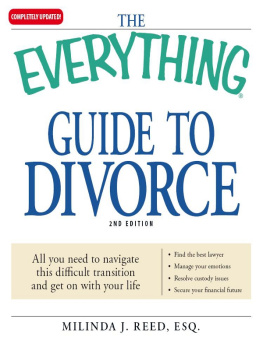

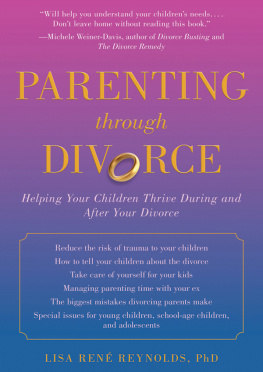
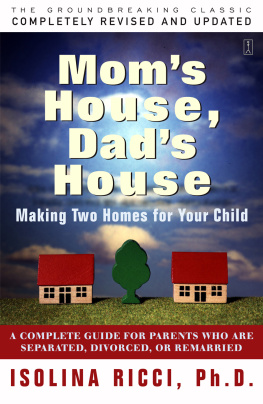
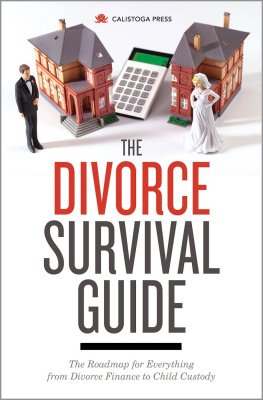
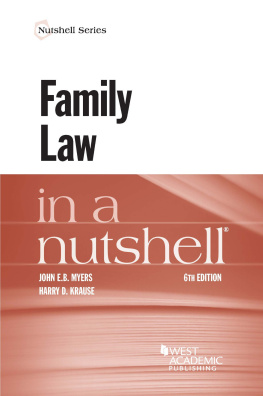
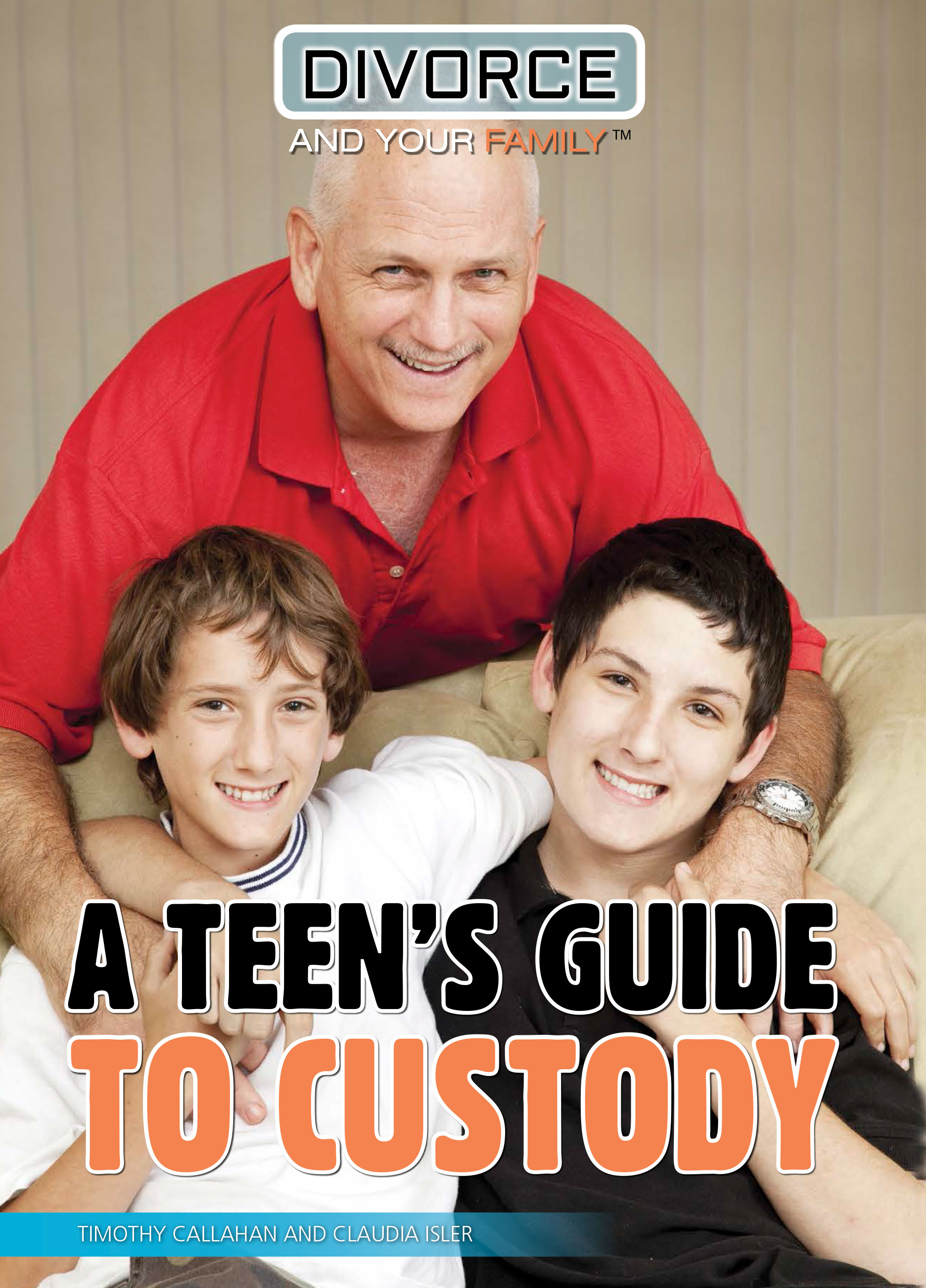


.jpg)
.jpg)
.jpg)